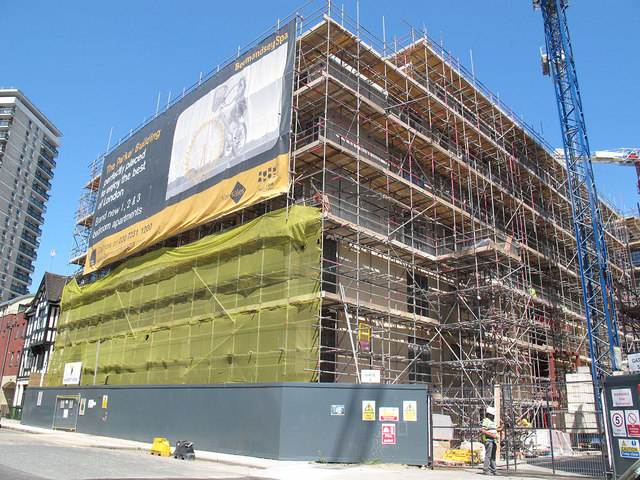Discover the hidden truths about construction dumpster rental that could save you thousands on your next building project – and why timing is everything.
The Hidden Costs and Crucial Decisions in Construction Waste Management
In the UK construction industry, waste management can account for up to 15% of your total project budget, yet it’s often overlooked during initial planning stages. Every construction project, whether it’s a small home renovation or a large commercial build, generates significant waste – typically around 100-150 cubic yards of debris for every 2,000 square feet of new construction. Understanding the complexities of construction waste management isn’t just about compliance; it’s about protecting your bottom line and ensuring project efficiency. From unexpected weight charges to permit requirements, the decisions you make about waste management can impact both your timeline and budget substantially.
Understanding Dumpster Sizes and Their Applications
Selecting the right dumpster size is crucial for cost-effective waste management. In the UK market, dumpster sizes are typically measured in cubic yards, with each size serving specific project needs:
- 10-yard dumpsters: Perfect for small renovation projects, bathroom remodels, or garden clearance. These compact units can hold approximately 3-4 tonnes of waste and are ideal for urban areas with limited space.
- 20-yard dumpsters: The most popular choice for medium-sized home renovations, these units can handle about 6-8 tonnes of waste, making them suitable for kitchen remodels or multiple-room renovations.
- 30-yard dumpsters: Ideal for major construction projects, these larger units can accommodate 9-12 tonnes of waste, perfect for new home construction or complete property renovations.
- 40-yard dumpsters: The largest option available, suitable for commercial construction sites or large-scale demolition projects, capable of holding 13-16 tonnes of waste material.
The Real Cost Structure of Dumpster Rental
Understanding the true cost of dumpster rental goes beyond the advertised daily rate. In the UK market, rental costs typically range from £200 to £800 per week, depending on size and location. However, several factors influence the final price:
- Base rental fees typically include a standard rental period (usually 7 days) and a specific weight allowance
- Hidden charges often appear in the form of environmental fees, fuel surcharges, or delivery distance fees
- Weight limits are strictly enforced, with overage fees ranging from £50 to £100 per tonne
- Delivery and pickup costs may be separate from the base rental fee, particularly in remote areas or locations with difficult access
Critical Timing and Placement Considerations
Proper timing and placement can significantly impact your project’s efficiency and cost. Most UK construction projects require dumpsters for 2-4 weeks, but optimal rental duration varies by project type. Strategic placement is crucial – you’ll need a solid, level surface that can support up to 16 tonnes of weight. Consider these factors:
- Optimal rental duration varies: small renovations (1-2 weeks), medium projects (2-3 weeks), large construction (4+ weeks)
- Strategic placement should account for easy access for both workers and collection vehicles
- Local council permits are required for street placement, costing between £30-£100 per week
- Access requirements include minimum clearance of 22 feet in height and 14 feet in width for delivery vehicles
Material Restrictions and Waste Management Compliance
UK waste management regulations are increasingly stringent, with hefty fines for non-compliance that can reach up to £50,000. Understanding material restrictions is essential for legal compliance and environmental responsibility. Construction waste must be properly segregated, with certain materials requiring specialist disposal:
- Prohibited materials include asbestos, batteries, chemicals, and liquid paints
- Hazardous waste requires separate disposal through licensed contractors
- At least 70% of construction waste must be recycled or reused under current UK regulations
Making the Most of Your Dumpster Rental
Maximising your dumpster rental investment requires careful planning and efficient loading techniques. Proper waste management can reduce disposal costs by up to 30% through effective organisation and loading strategies. Consider implementing these practices:
- Break down large items to maximise space utilisation
- Load heavier materials first, distributing weight evenly
- Schedule regular waste removal to maintain site safety and efficiency
- Consider multiple smaller dumpsters for different waste types rather than one large unit
Expert Tips for Successful Waste Management
Successfully managing construction waste requires a strategic approach. Recent industry data shows that proper planning can reduce waste disposal costs by up to 25% and improve project efficiency by 20%. Essential considerations include:
- Accurately estimate waste volume before hiring – multiply your project square footage by 0.075 for a rough calculation
- Book dumpsters at least a week in advance during peak construction seasons
- Maintain open communication with your rental provider for schedule adjustments
- Consider weather impacts on waste volume and collection schedules
Conclusion: Maximising Value in Construction Waste Management
Effective dumpster rental management can significantly impact your construction project’s success. By understanding size requirements, cost structures, timing considerations, and compliance requirements, you can avoid common pitfalls and potentially save thousands of pounds. Remember that proper waste management isn’t just about disposal – it’s an integral part of project efficiency and sustainability. Take time to plan your waste management strategy carefully, and don’t hesitate to consult with multiple providers to ensure you’re getting the best value for your specific needs.
FAQ
Where to dispose of concrete and bricks?
Take the concrete to a landfill or transfer station. Recycle it. Deliver the concrete to a construction and demolition (C&D) waste recycling center facility.
How expensive are dumps?
Average landfill fees range from $40 to $60 per ton or $15 to $30 per cubic yard for smaller loads.
What to do with an old concrete slab?
Old, unneeded concrete can be recycled and used to create recycled aggregate. In most cases, recycled aggregate will be used as a subbase material, but it can also be paired with virgin materials and reused as an aggregate in new concrete.
What is the cheapest way to dispose of construction waste?
Use a HIPPOBAG – A skip bag can be used to dispose of building waste such as bricks, soil, broken tiles and concrete. Skip bags are an affordable alternative to hiring a skip and come in various sizes.
Sources
[1] https://www.goldencoastdumpsterrental.com/san-mateo-ca/
[2] https://www.budgetdumpster.com/san-francisco-ca-dumpster-rental-california.php
[3] https://rdsredwood.com


Leave a Reply